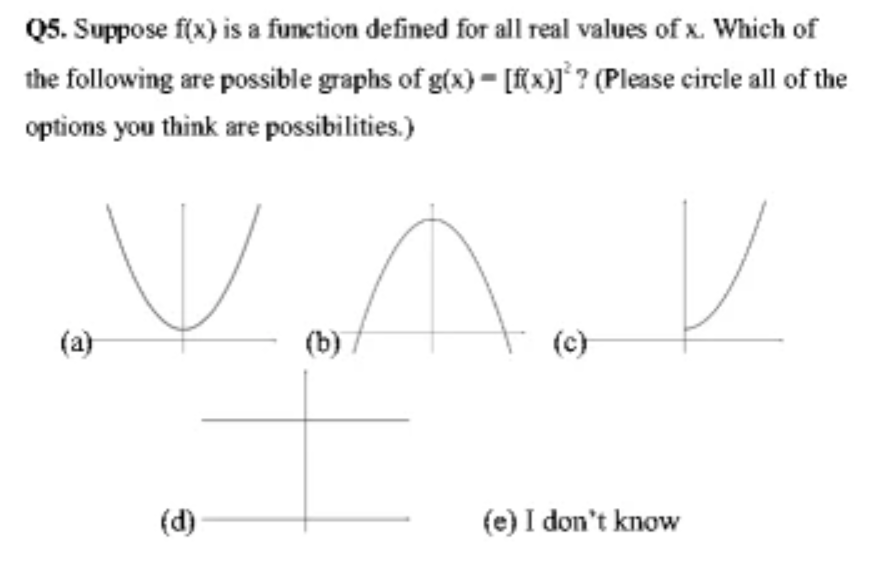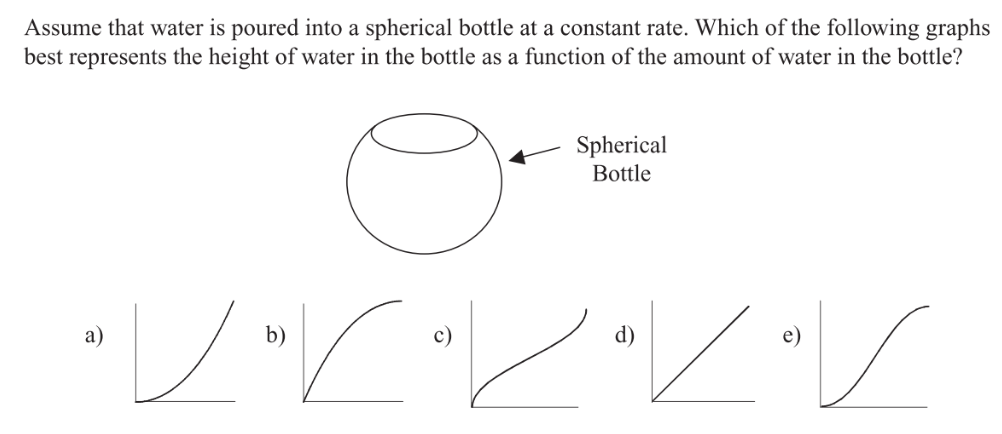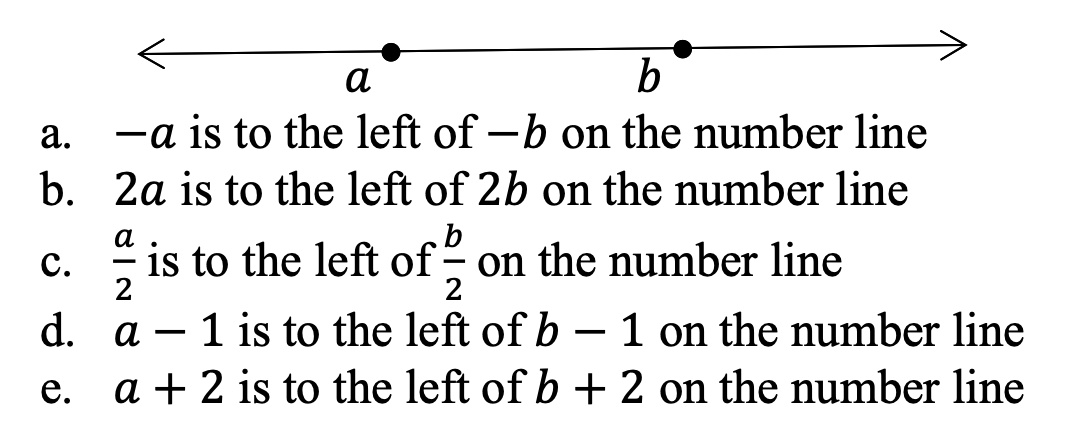There is the so-called FCI test. It contains a list of questions such that anyone who can speak will have an opinion. Based on the answers one can determine if the answerer knows elementary mechanics. I learned about this test from an interesting lecture from Eric Mazur describing an application of such a list.
It seems that there are no analogous tests in mathematics. Did I miss something?
Sergei Tabachnikov shared a couple of questions that might work:
One needs to peel potatoes. What is faster and why: peeling a pound of large or small potatoes?
Why does a reflection in a mirror interchange left and right, but not up and down?
Two people are walking down an escalator (that is moving down), counting their steps. Who will count more steps, the one who is moving faster or slower?
Could you share more questions of this type?
Please make one question per answer. The questions should not use any professional jargon; no graphs no formulas; say, they could be asked in a kindergarten. I think it is possible to find such question for Euclidean geometry; I am not sure about other branches of mathematics.



